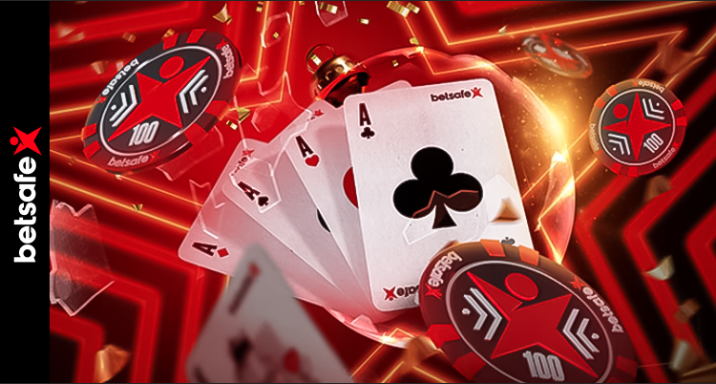

Continuation bet: what it is and when to do it

Although the term is not completely unknown to
poker fans, only at a certain level do they start to work with concepts like
this because of the complexity they can entail.
Although in reality it is not so complicated: a continuation bet is the one made by a player who has raised preflop because he has not called on the flop. Ultimately, it is a bluff based on the proof of strength shown during preflop but it doesn't always work and requires the player to vary his play so that other players don't call the play at first.
Considerations about
continuation bets in poker
There is a basic aspect of the so-called C bets
(short for continuation bet, the original term for "continuation
bet"), and that is to know which player you are up against.
It is not so much a play to turn the table upside down as it is to bluff a
particular opponent. It's important that you know what his game is based on.
For example, if you are facing a player with a tendency to push opponents out
of the pot, it may be a good move.
The profitability of a continuation bet in
poker is based on the probability that your opponent will hit on the flop.
Seven times out of ten he will not do it, and you will be able to take better
advantage of your cards. Of course, it is essential that you change your
game immediately for a continuation bet to work and that your opponents do
not discover your intentions. After all, it is not easy for you to flirt on the
flop, which will set off the alarms of the most experienced players.
The situation is this: as soon as you make a
continuation bet, most of the players who have called will try to check to you
in order to catch you. This is a controlled danger because it means that
they will not have discovered your move (be wary if they do not go for you
first because it means that they smell the toast).
What a priori is a good opportunity for them ends up being a bad move because they will lose a golden opportunity to make the big pot, since you have the option to opt for a free card if you do not see it clear. And you also have the option to fold when you don't hit on the turn.
What is the reading of a
continuation bet when it is executed?
Let's explain it with an assumption: if an ace
comes out on the flop, your continuation bet represents that you have an ace in
your hands. The key is to calculate how much it will cost you to push your
opponents out of the pot to call the bet. Keep in mind that each player will
be defending his blind, so bets may vary depending on which player you are
trying to push out.
And what about continuation betting delays, is it a good idea to delay? The truth is yes, delaying the continuation bet in poker to the turn can be an excellent idea because players are usually already used to seeing it coming on the flop. Also, if your opponent checks to you on a flop that doesn't quite convince you, you can check to see what he does during the turn. When you check the second time, make your continuation bet, since it is much more difficult to check-raise when there is only one card left to go.
Occasions when you should
not make a continuation bet
The advantage of a continuation bet is clear:
it allows you to take advantage of the initiative advantage gained by raising
preflop, while maintaining the same during the flop with another bet.
They are very profitable and will allow you to win the pot almost effortlessly, but beware: they should not be used lightly or too often. Their trump card is that they can be unpredictable, and if your opponents see it coming, all the strategic advantage they give you can disappear at a stroke. Let's take a look at the scenarios in which a continuation bet in poker has no place.
If there are many players,
discard it
This is the basic rule of proportionality: the
more players doing the same thing, the less likely it is that a continuation
bet can prosper. This usually happens when the preflop bet is raised and
many players do so as well, which would completely nullify the continuation
bet.
Keep in mind that continuation bets are bluffs that use the advantage gained by doubling the preflop bet, but that advantage diminishes when there are too many players at the table.
If there are too many
bets, leave it for another time
Bluffing doesn't work when there are multiple
open bets at the table, and it's best to save it for another time when it's less of an issue.
In fact, you should discard the option of a continuation bet if the opponent
against whom you intend to make it is one of those who uncover the flop very
badly.
A continuation bet only works in poker when the opponent is caught with the wrong foot. We do not say with this that you should play it indiscriminately, but that you should be aware to take advantage of the occasion when you see it clear. And, of course, with several bets going on, a continuation bet is not going to work, so wait for the right moment.
Don't forget your game
Although continuation bets are guided by the
way the opponent plays and this has a decisive role in the development of the
bet, you must not forget that it is the flop that has to help you. If you see
that you are not going to be able to make a profit, then placing a continuation
bet is not the best idea. C bets are useful when you sense that the flop may
be favorable. In this way, you increase your bet before the flop.
You may also like

The hand of the dead man
The hand of the dead man If you understand about poker, you may already know that when we speak of "the hand of the dead man" we do not refer to the continuation of the Count of Monte Cristo writte...

Real-Life Poker Lessons: Strategies for Everyday Decision-Making
Real-Life Poker Lessons: Strategies for Everyday Decision-MakingReal-Life Poker Lessons: Tough Decisions and Game Strategies for Everyday LifePoker isn’t just a card game; it’s a life lesson in str...













